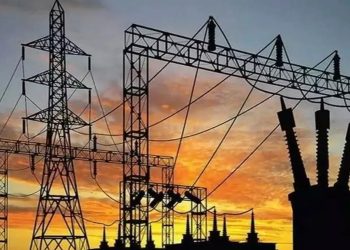The much-anticipated meeting between U.S. President Donald Trump and Ukrainian President Volodymyr Zelenskyy at the White House ended in an unexpected and highly publicized fallout, leaving US-Ukraine relations uncertain and Russia’s position potentially strengthened.
According to a report by international media, the Oval Office encounter, meant to solidify a minerals deal and reinforce US support for Ukraine, instead devolved into a heated exchange that cast doubts on the future of bilateral negotiations and the broader geopolitical landscape.
A Heated Oval Office Confrontation
Scheduled to finalize an agreement granting the U.S. access to Ukraine’s critical mineral resources, with proceeds intended for Ukraine’s post-war reconstruction, the meeting took an unexpected turn. A nearly hour-long media availability spiraled into an argument over Russian President Vladimir Putin’s history of breaking agreements and whether Zelenskyy had shown sufficient gratitude toward his American hosts.
Trump, alongside Vice President JD Vance, publicly challenged Zelenskyy’s stance and his approach to diplomacy, leading to an impasse that saw the Ukrainian leader leave Washington without a signed deal.
Following the clash, Trump took to social media, stating that Zelenskyy “can come back when he is ready for peace,” signaling a potential shift in U.S. engagement with Ukraine under his administration.
This remark raised concerns about Washington’s long-term commitment to Kyiv, particularly given Trump’s history of skepticism toward U.S. military and financial support for Ukraine.
Implications for US-Ukraine Relations
Experts have pointed out that the key issue in this debacle is not merely the breakdown in decorum but rather the broader strategic implications for U.S. national interests.
Dan, a geopolitical analyst, argues that the rupture with Ukraine lacks clear benefits for the U.S., especially given the “little consistency” in American positions on the minerals deal, military aid, and Europe’s role in defending Ukraine.
Leslie, another foreign policy expert, suggests that Zelenskyy should swiftly attempt to mend relations with Trump through an apology and a targeted media campaign aimed at conservative outlets such as the New York Post and Washington Examiner.
However, Zelenskyy’s decision not to directly apologize in a Friday evening interview with Fox News may have complicated efforts to rebuild trust with Trump’s administration.
Despite the diplomatic fallout, Leslie maintains that Zelenskyy should continue pursuing the minerals deal, as it not only secures U.S. investment in Ukraine’s recovery but also strengthens American incentives to maintain long-term support for Kyiv.
The deal’s structure ensures that the U.S. can only access Ukrainian minerals if Ukraine remains free from Russian aggression, further tying Washington’s economic interests to Ukraine’s sovereignty.
Russia’s Strategic Gains
In Moscow, Friday’s developments were met with enthusiasm. Russian state media characterized the event as a “public flagellation” and a “dressing down” of Zelenskyy, reinforcing the Kremlin’s narrative that the U.S. and Ukraine are fractured in their alliance.
Brian, an expert on Russian affairs, warns that this situation brings Russia closer to its ultimate goal: direct negotiations with the U.S. over Ukraine’s future, sidelining Kyiv in a scenario reminiscent of the Yalta Conference at the end of World War II.
Furthermore, the discord between Washington and Kyiv may bolster Putin’s hopes of securing U.S. concessions, including the easing of sanctions against Russia.
Brian notes that with the front line in eastern Ukraine largely stagnant, the most significant factor influencing the war’s outcome is the Russian economy, which remains under strain and is reportedly on the brink of crisis. A weakened stance from the West could allow Moscow to circumvent economic pressure and prolong its military campaign.




































